Photographs: David Gray/Reuters Business Standard in New Delhi
About one per cent of Indians fly every year, and not from lower income groups.
When it comes to regional connectivity, the government of India appears to err on the side of unwarranted generosity to private airlines.
Its recent decision to scrap rules that make it mandatory for airlines to deploy 10 per cent of their capacity on unviable routes like Jammu & Kashmir, the northeast and the Andaman & Nicobar Islands and subsidise those that agree to do so flies in the face of logic.
The generosity does not stop here.
. . .
Subsidising airlines on non-viable routes is wrong
Image: Mumbai International Airport.Photographs: Reuters
The government also plans to approach state governments in such regions to lower sales tax on aviation turbine fuel to attract private carriers to their airports.
It is hard to understand the logic of either policy.
First, although it is true that airlines incur losses on these routes, they can by no means be suffering losses solely on account of them.
That's because they cover these losses through cross-subsidies in regular passenger fares on other, viable routes.
. . .
Subsidising airlines on non-viable routes is wrong
Image: Air India's Dreamliner Boeing 787 is given a traditional water cannon salute.Photographs: Mansi Thapliyal/Reuters
If there is an anomaly here, it is that the amount is not explicitly stated and the ministry of civil aviation would do passengers a big service if it mandatorily required airlines to transparently declare these numbers.
Second, the government's stated reasons for the subsidy -- not raising passenger fares -- make little sense.
About one per cent of Indians fly every year, and not from lower income groups.
Should the government spend so much to help them out? Indeed, the Airports Authority of India already takes a hit of Rs 100 crore (Rs 1 billion) for aircraft of less than 80 seats landing in northeastern airports.
. . .
Subsidising airlines on non-viable routes is wrong
Image: Civil Aviation Minister Ajit Singh.Photographs: Reuters
This, too, is inexplicable.
Aircraft of such configuration usually denote private-owned aircraft or the smaller aircraft of private airlines.
Why should the government subsidise them?
It may, of course, be argued that mandating a 10 per cent capacity routing amounts to unwarranted interference in the operations of private entities.
Also, it can be considered unfair given that the government does not impose such mandatory conditions on, say, telecom companies buying and operating publicly owned spectrum.
. . .
Subsidising airlines on non-viable routes is wrong
Image: New Delhi International Airport.But it is equally true that in the early days of aviation liberalisation it was the private scheduled airlines that reaped the benefits of not having to ply these 'category II' routes even though state-owned Indian Airlines (as it was then known) was obliged to do so.
Also, it is perfectly legitimate for governments the world over to use policy instruments to achieve a social goal (in this case, greater integration).
The backward-area tax breaks that states offer are a case in point.
. . .
Subsidising airlines on non-viable routes is wrong
Image: IndiGo Airlines.Photographs: Vivek Prakash/Reuters
The government should maintain the requirement for private airlines, and not subsidise them in addition.
It is possible that the United Progressive Alliance government is trying to leaven its expensive aam aadmi proclivities with so-called 'industry-friendly' policies.
But just as it makes little sense to persist with petroleum subsidies on the questionable grounds that they help the common man, it makes little sense for shelling out for people who don't need it.
Or perhaps the civil aviation ministry has not heard of something called the fiscal deficit.

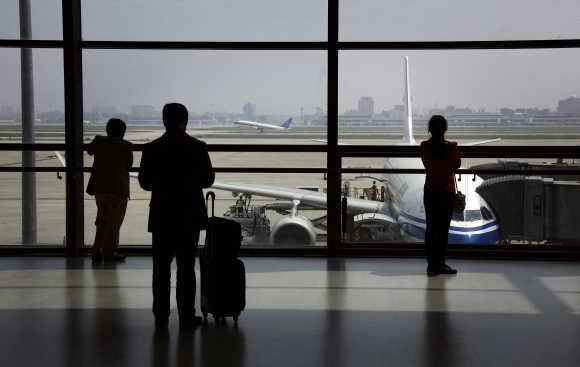

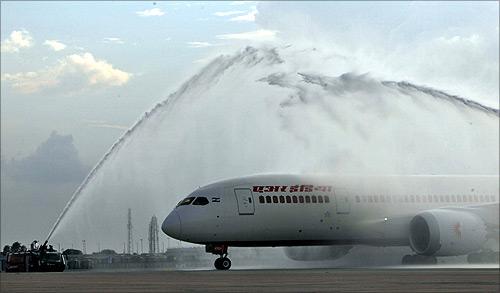
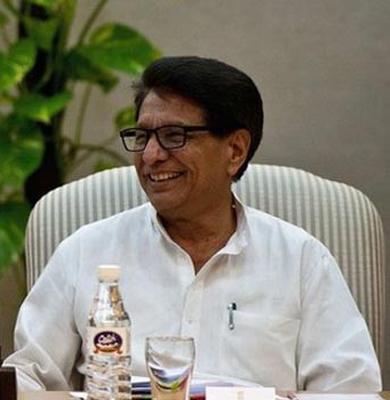
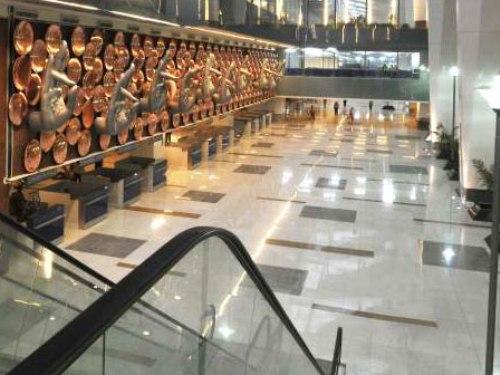
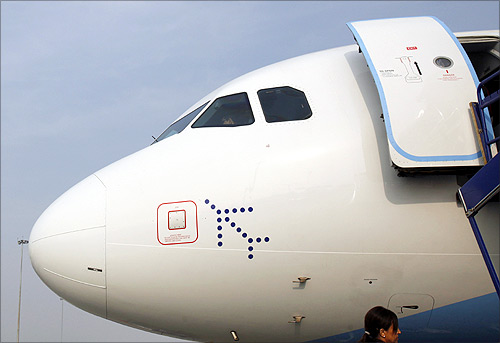

article